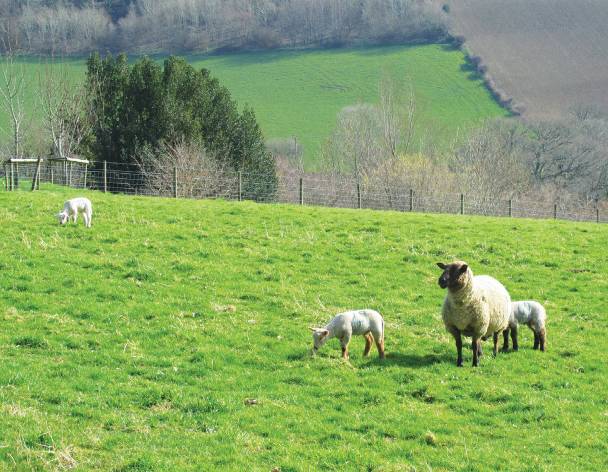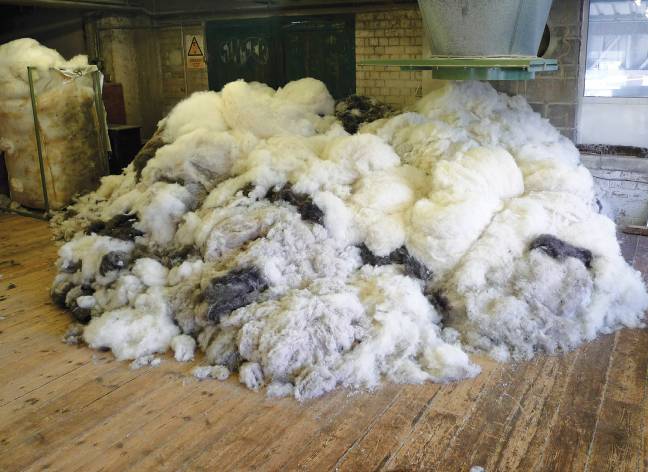
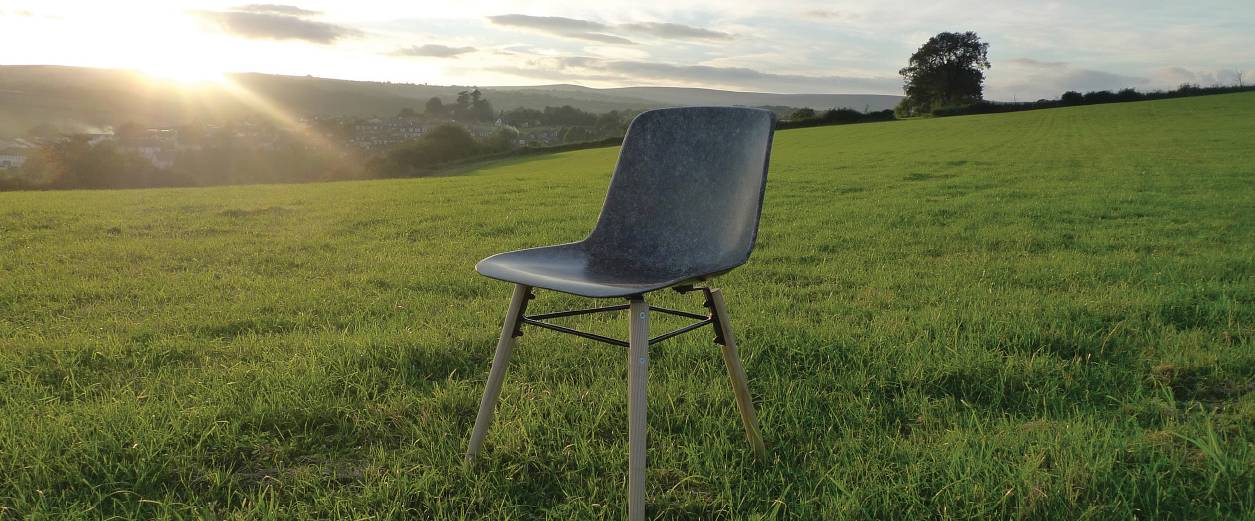
UK-based Solidwool has created a sustainable alternative to injection-molded polymers and fiberglass out of sheep wool. The company’s wool composite, using wool as the reinforcement and bio-resins as the binder, is both beautiful and durable. By combining modern manufacturing techniques with natural materials, the company has successfully designed a replacement for fiberglass that also eliminates waste and helps to support the local farming industry. Through innovative design, Solidwool has found a way to address multiple problems, while simultaneously creating a high-value product that can serve many purposes.
Meghan French Dunbar: What is the story behind Solidwool?
Hannah Floyd: My husband Justin and I created Solidwool. In 2012, we were both looking at ways of creating our own business. We wanted to use our design skills to do good and felt our current work didn’t offer enough value. Both of us have creative backgrounds – Justin is a product designer and I worked in marketing. We knew that design is a force for good and we wanted to see if we could use design to create jobs and bring some manufacturing back to our hometown of Buckfastleigh, on the southern edge of Dartmoor National Park in southwest England.
Our small market town had once been a thriving part of the woolen industry, but this industry left the town over time as the mills moved up north and the carpet industry moved abroad. We found that the sheep farmers in the area no longer had the same demand for the coarse fleeces of their moorland sheep.
So we started with wool.
With much experimentation and play, we finally came up with the idea for Solidwool. Justin had worked with designing composite products in the past and so he was able to apply his knowledge to developing the material we created.
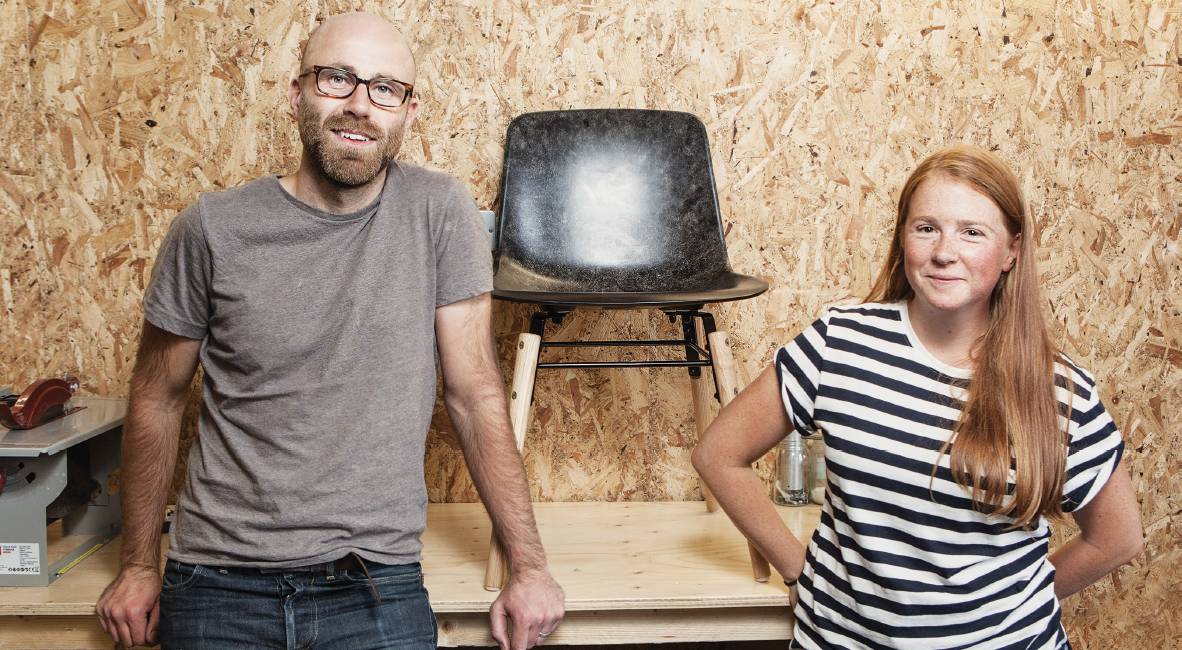
MFD: Why is Solidwool considered sustainable or more environmentally friendly?
HF: Our aim is to create a fully natural composite material that is tough, long-lasting, and beautiful.
The coarse fleeces from the breeds of sheep that live in the upland areas of the UK that we use have diminishing market potential. These fleeces once found use in carpets, rugs, and blankets, but with the modern day obsession with finer grades of wool and the decline of these industries in the UK, they are becoming surplus. We are finding a high-value use for a material that is a by-product of farming the uplands areas of the UK. You could say we are finding a high-value use for a waste material. A vision of ours is that, as our buying capacity grows, we will be able to buy from and work with farmers that we feel farm in a sustainable way, thereby promoting methods of farming that are more friendly to the environment.
Also, we use a bio-resin as the binder. Traditionally, the resins used in manufacturing composite materials are 100% petrochemical and have varying levels of toxicity. They have a significant carbon footprint in their manufacture and emit potentially harmful toxins during use. The toxicity is locked up when they are fully cured (but, what do you think that “new car interior” smell is?). Of course, these resins are also not pleasant to work with.
The resins we currently use can be classed as bio-resins. The resin used in the first generation of Solidwool products has roughly 30% bio-based renewable content. Sourced from the waste streams of other industries, such as wood pulp and bio-fuels production, this environmentally conscientious resin manufacturer claims a minimum 50% reduction in the carbon footprint of the manufacturing process as compared to traditional resins. Plus, the company’s green chemistry eliminates those harmful toxins.
Our resins are some of the most expensive available (a 30-50% increase in price over conventional resins systems), however, the company we work with is at the forefront of creating environmentally friendly resins. Although our resins are not yet 100% natural, the only way for this to become a reality is to support those who are innovating in this field.
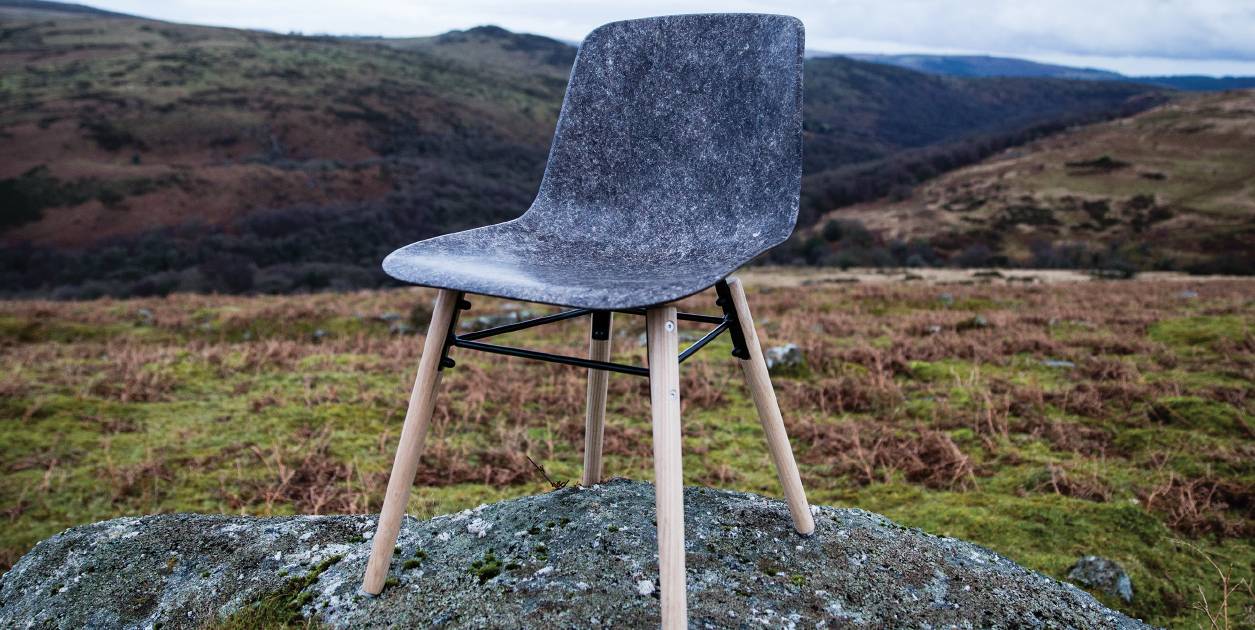
MFD: What products do you make and what are you developing next?
HF: We believe in creating beautiful, soulful products that are designed to last. The Solidwool line currently includes the Hembury Chair. We designed this product as a showcase for the material. It is inspired by the Eames Plastic Side Chair, which was originally manufactured using fiberglass in the 1950s.
For this chair, we are using fleece from the hardy Herdwick sheep of the Lake District. It produces a beautiful aesthetic when used as Solidwool, giving a dark grey composite with the lighter hairs standing out.
The chair was showcased at Milan Design Week in April 2014 to much interest. Following this chair, we are looking to further develop our range of Solidwool housewares in 2015.
We will also be developing our Solidwool collaborations, making the material available to like-minded companies should they wish to include Solidwool products in their own lines. We want to work with companies with stories that matter – stories of passion, craft, and purpose.
We are currently working on three collaborations. First, we are manufacturing photo calendars made out of Solidwool for a Colorado-based company, Artifact Uprising, as part of its “materials matter” holiday shop. Second, Blok Knives is using Solidwool for the handles of its hand-crafted kitchen knives. Finally, Fan Optics, a contemporary eyewear company, is including a set of Solidwool frames in its spring/summer 2015 collection.
MFD: How do you envision this concept scaling and growing?
HF: We feel that Solidwool has a huge amount of potential applications. We will continue to develop our own lines of furniture and housewares, as well as different versions of Solidwool materials and manufacturing methods. We have our own facility set up for design, manufacturing, and development and are seeking collaborations with like-minded businesses who can see a place for Solidwool in their product lines. These collaborations will allow us to have greater buying power for the raw wool material and help us to achieve our goal of supporting sustainable farming methods.
